The most important facts about the Kurban-Bayram holiday
Categories: Holidays and Festivals
By Pictolic https://pictolic.com/article/the-most-important-facts-about-the-kurban-bayram-holiday.htmlToday, Muslims around the world celebrate one of the most important holidays in Islam - Eid al-Adha. In different countries, the holiday is celebrated in different ways, in many regions of multinational Russia, various festive events are also planned.
The capital is also no exception, since a large number of Muslims have long lived in Moscow - Tatars (the second largest nationality after Russians), Azerbaijanis, Dagestanis, Chechens and many other peoples who profess the most common religion in the world - Islam.
We congratulate all Muslims on this holiday and offer you to get acquainted with interesting facts and photos of Eid al-Adha from our selection.
(Total 12 photos)
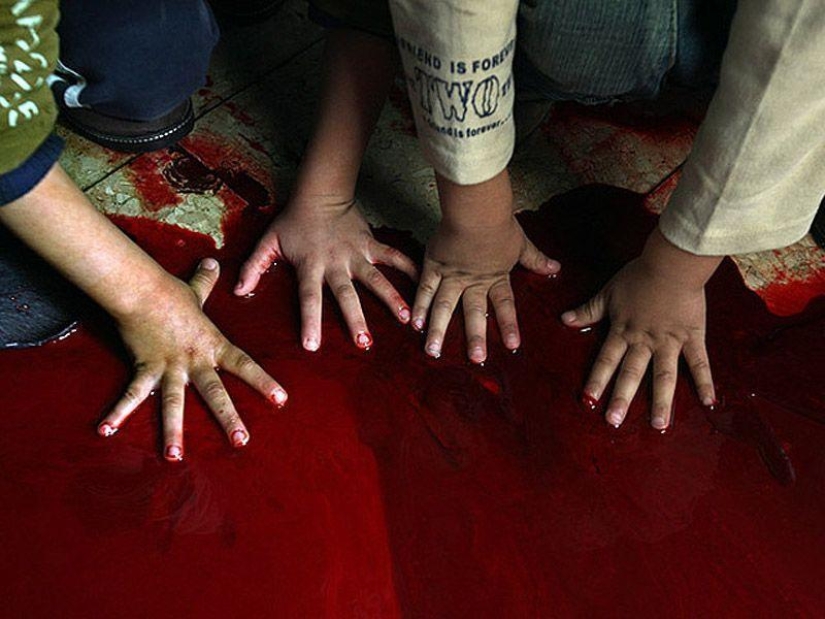
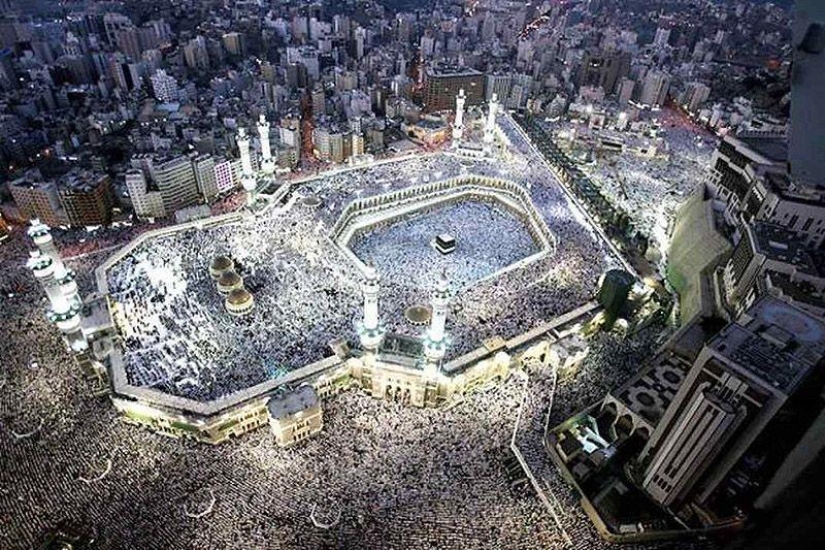
1. The beginning of Eid al-Adha or the "Feast of Sacrifice" coincides with the last day of pilgrimage to Muslim shrines in Saudi Arabia. On the eve of the holiday, pilgrims climb Mount Arafat, and on the day of the sacrifice, a symbolic beating of Satan and a solemn detour around the Kaaba in Mecca take place.
Hajj is the fifth pillar of Islam. The holiday is celebrated 70 days after the celebration of Uraza Bayram, that is, on the 10th day of the twelfth month of the Muslim lunar calendar. It lasts for 3-4 days.

2. The essence of the holiday is the sacrifice in the valley of Mina. However, not all Muslims can make a pilgrimage to Mecca, in connection with which Muslim canons prescribe to perform the main part of the rite wherever a Muslim finds himself.
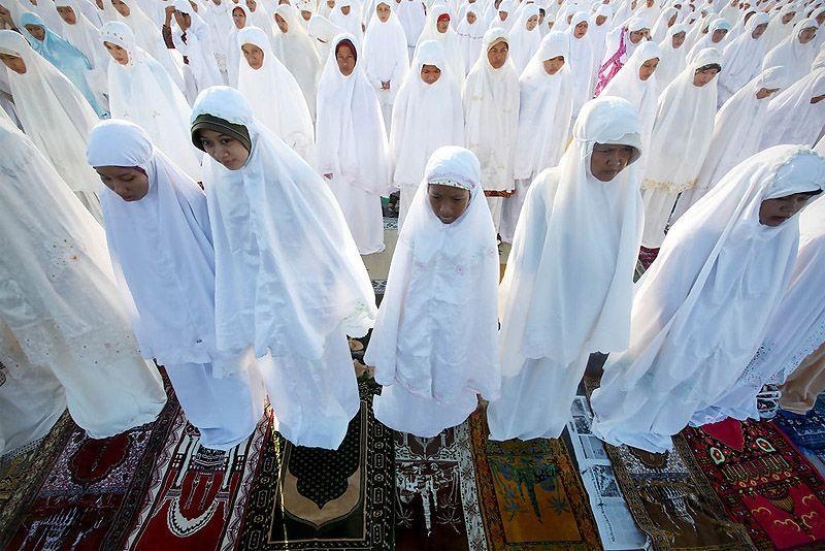
3. Regardless of the region and the characteristics of the national cuisine, all Muslims should try a lot of meat dishes these days, and a huge amount of sweets are also served on the tables. (Getty Images)

4. The holiday itself dates back to the time of Ibrahim, when Allah stopped his hand, already raised above the head of his son to sacrifice him, and ordered to slaughter a lamb that was nearby. (Getty Images)

5. Thus, a new law was established to prohibit human sacrifice and start animal sacrifice. (Getty Images)
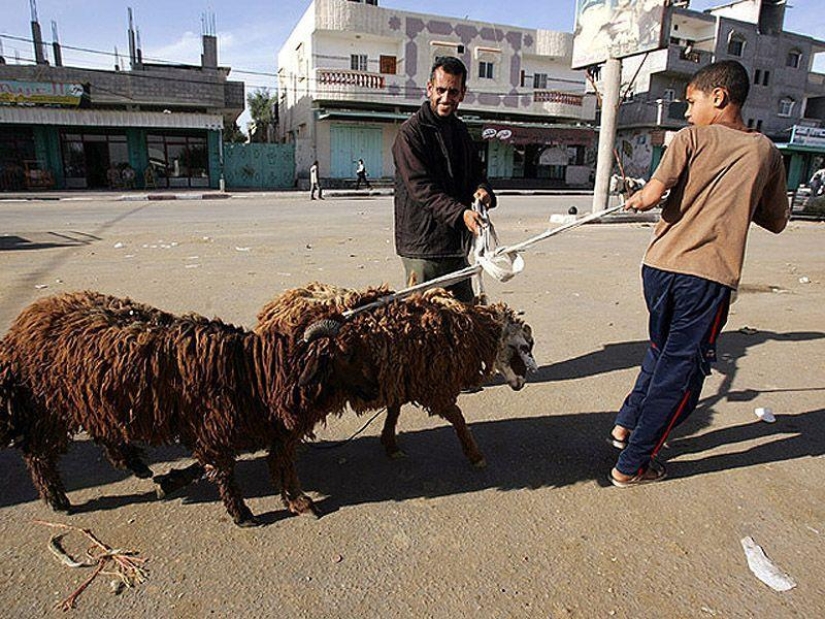
6. Eid al-Adha start celebrating in the morning. Having performed ablution and put on new clothes, the Muslim goes to the mosque for the morning prayer. After the completion of the prayer, the believers return to their homes, where they sing praises to Allah in unison. Then Muslims go to a special site or to a mosque, where the mullah delivers a sermon. At the end of the sermon, the participants visit the cemetery, where they pray for the departed. (Getty Images)
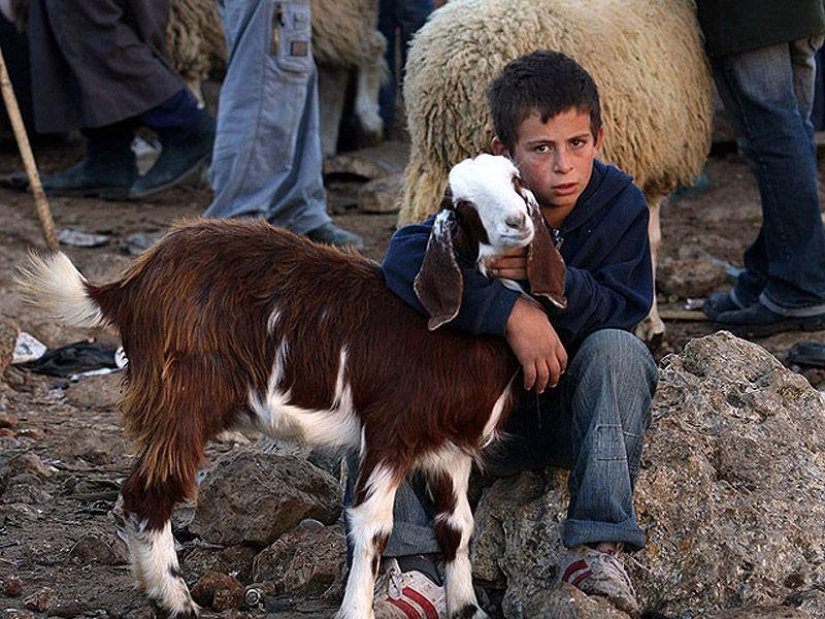
7. Returning home, they begin the ritual of sacrifice. (Getty Images)
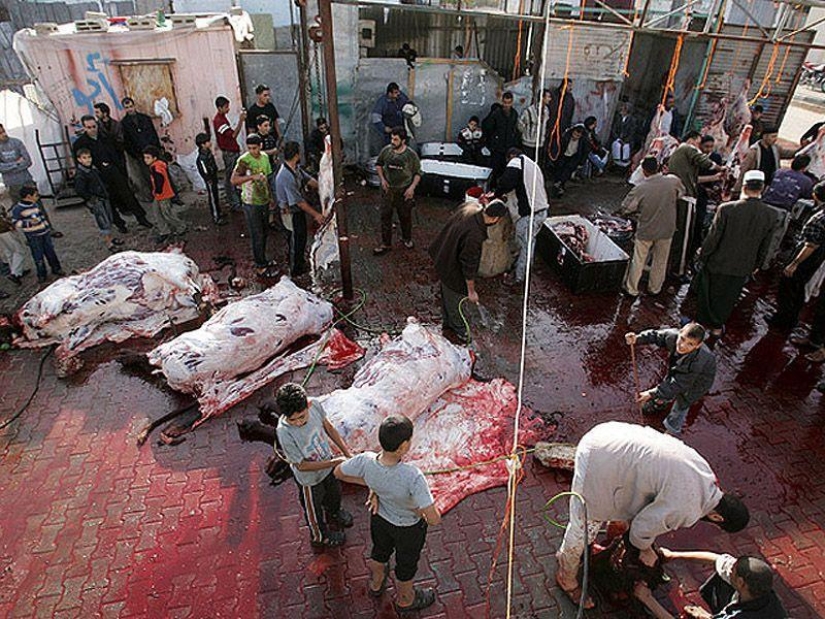
8. (Getty Images)
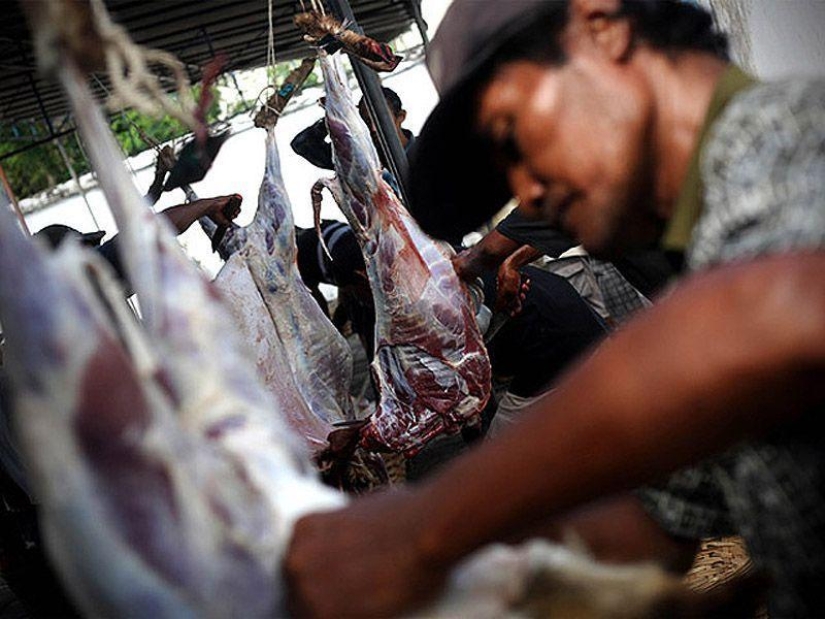
9. The rules of the holiday prescribe to treat everyone, and especially the poor. (Getty Images)
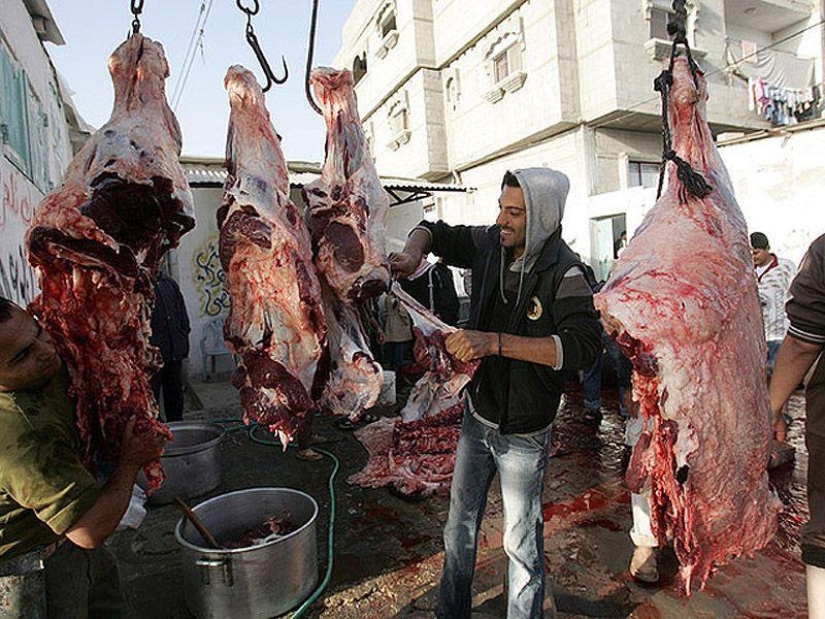
10. Muslims try to make gifts to friends and relatives on the days of Eid al-Adha and go to visit each other, visit relatives and friends, since the presence during the ritual of sacrifice is considered blessed.
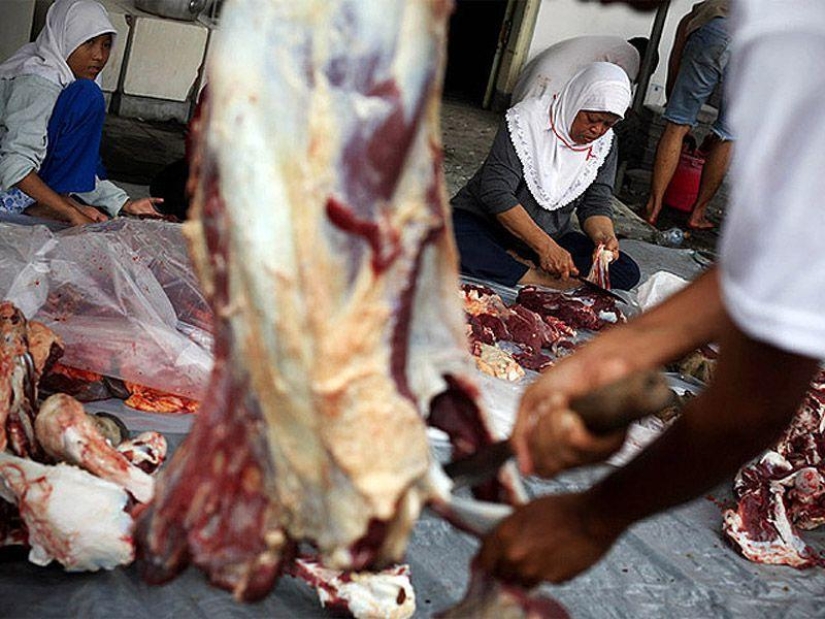
11. It is believed that a sheep or a goat can be sacrificed only from one person, and a cow, bull or camel - from seven people.

12. The Turkic name Eid al-Adha has an Arabic name for the holiday, Eid al-Adha (Arabic عيد الأضحى 'Īd 'al-'Aḍḥā). It translates as "the feast of the sacrifice." (Getty Images)
Keywords: Eid al-Adha | Muslims | Facts
Post News ArticleRecent articles

Everyone has heard about harmful tenants and hotels that deceive their customers. However, guests are not always a "gift"! Some ...

The whole world knows the graphic artist and illustrator Theodor Kittelsen from his drawings of mythological characters and ...
Related articles

Throughout history, men have worn, sold, and gave great value to precious metals, rare gemstones, and jewelry. But even if you ...

How much do you know about the United Kingdom? No, not about England, but about the whole of Great Britain as a whole? I bet you've ...

The eyes are one of the most expressive and attractive parts of the human body. The mirror of the soul and the object of ...

Many people know that prisoners of Nazi concentration camps had a tattoo with a number on their arm. But few people know that this ...